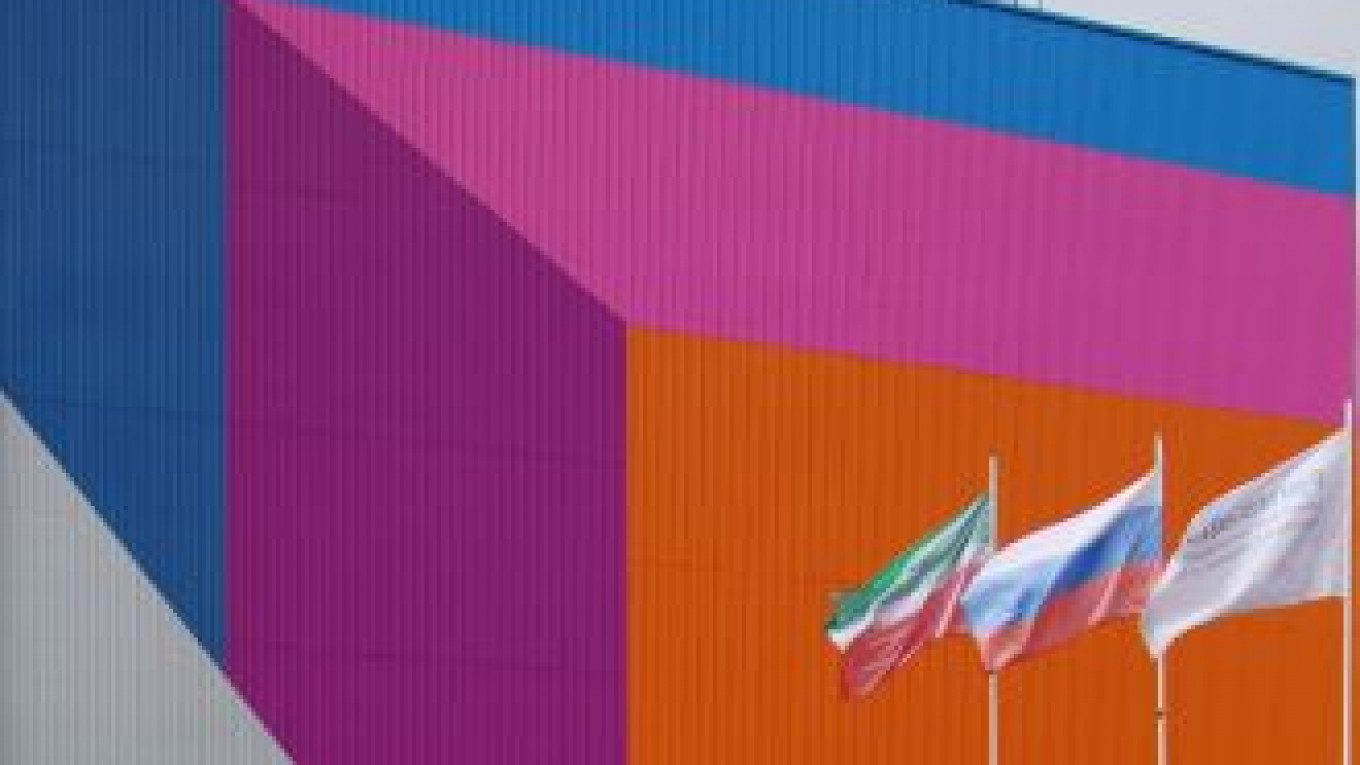While European car sales continue to experience a sharp downturn, leading manufacturers such as U.S. carmaker Ford Motor Company are investing heavily in emerging markets and pampering customers there with new models.
Ford Sollers, the local joint venture of Ford, announced on Tuesday that it was going to assemble the EcoSport SUV at one of its factories in Yelabuga, Tatarstan. Production of the SUV in Russia is to start in late 2014.
Also announced were plans to build a new auto engine factory next to the existing car plant in Tatarstan. The facility is to start operating in 2015 and will make 105,000 engines annually with an option to increase this capacity to 200,000 units per year. It will allow Ford Sollers to equip at least 30 percent of vehicles it makes here with locally produced engines, the company said in a statement.
Ted Cannis, head of Ford Sollers, said in an interview that the company first introduced the EcoSport in Brazil a little over a year ago, where it was a big success. Then, a month ago, the vehicle was brought to China, and in several months it will appear in India. The Russian launch comes before the start of the production of the SUV in Europe, where car sales have been declining since 2010.
The prices at which the EcoSport will be sold in Russia were not announced, with a company spokesman only saying that they “will be competitive.” In Brazil, the dealers’ prices for this model start at $26,000. At Ford dealers in Mumbai, India, prices for EcoSports range from $16,500 to $20,000.
Despite a moderate downturn in car sales seen in Russia from the beginning of the year, the country is a critical automobile market, which is projected to surpass Germany in the future.
“Definitely, the rate of growth in the country is slowing down but the market is still growing. With 3 million [cars produced annually] — it is a big industry,” Cannis said. “Despite Europe’s absolute total problem there is no panic in Russia. If Russia can do this well with its best trading partner having such a difficult time, what will it be like afterwards? With our level of operation here it should be a very exciting future,” he added.
And the market is far from being saturated. The country still has half the number of cars per person than Spain, Cannis said.
Ford Sollers, a joint venture with local auto-assembling giant Sollers, started a year and a half ago and has advanced from producing just two cars — the Focus and Mondeo — at a plant near St. Petersburg to seven models, including the Galaxy, S-MAX, Transit, Kuga and Explorer at the two factories Ford Sollers has in Tatarstan.
As of last month, the large SUV Ford Explorer is under full-scale production with the Kuga crossover to follow soon, the management said.
Although Ford Sollers did not confirm that the EcoSport would be manufactured in Russia, the company did not reject that possibility after a trial period of kit assembly.
While the local mindset that Russian-made products are inferior to those produced in Europe or the U.S. is an obstacle, Ford Sollers believes that the company possesses the necessary facilities and staff to overcome this stereotype.
“Our experience is that great quality can be built in Russia … We take the same processes we use in Mexico, the US and Germany to plants here. And they are world-class. The St. Petersburg plant is one of the best in the entire Ford world. It beats many countries. And that was the reason for Focus being the best car of the year for the last three years,” Cannis said.
And Sollers skills have been a valuable addition to Ford’s own extensive experience. “The team in Yelabuga is extremely strong. It was one of the reasons we founded the joint-venture — they already had skillful people,” he said.
There are 1,500 people working at the Yelabuga plant, Soller said, and there are plans to increase that number to 2,000 by the end of the year. Another 500 workers will be needed for the engine plant by 2015.
Contact the author at a.panin@imedia.ru
A Message from The Moscow Times:
Dear readers,
We are facing unprecedented challenges. Russia's Prosecutor General's Office has designated The Moscow Times as an "undesirable" organization, criminalizing our work and putting our staff at risk of prosecution. This follows our earlier unjust labeling as a "foreign agent."
These actions are direct attempts to silence independent journalism in Russia. The authorities claim our work "discredits the decisions of the Russian leadership." We see things differently: we strive to provide accurate, unbiased reporting on Russia.
We, the journalists of The Moscow Times, refuse to be silenced. But to continue our work, we need your help.
Your support, no matter how small, makes a world of difference. If you can, please support us monthly starting from just $2. It's quick to set up, and every contribution makes a significant impact.
By supporting The Moscow Times, you're defending open, independent journalism in the face of repression. Thank you for standing with us.
Remind me later.






